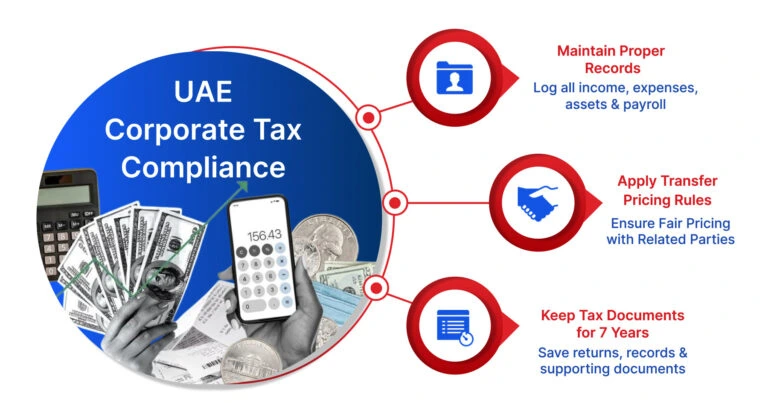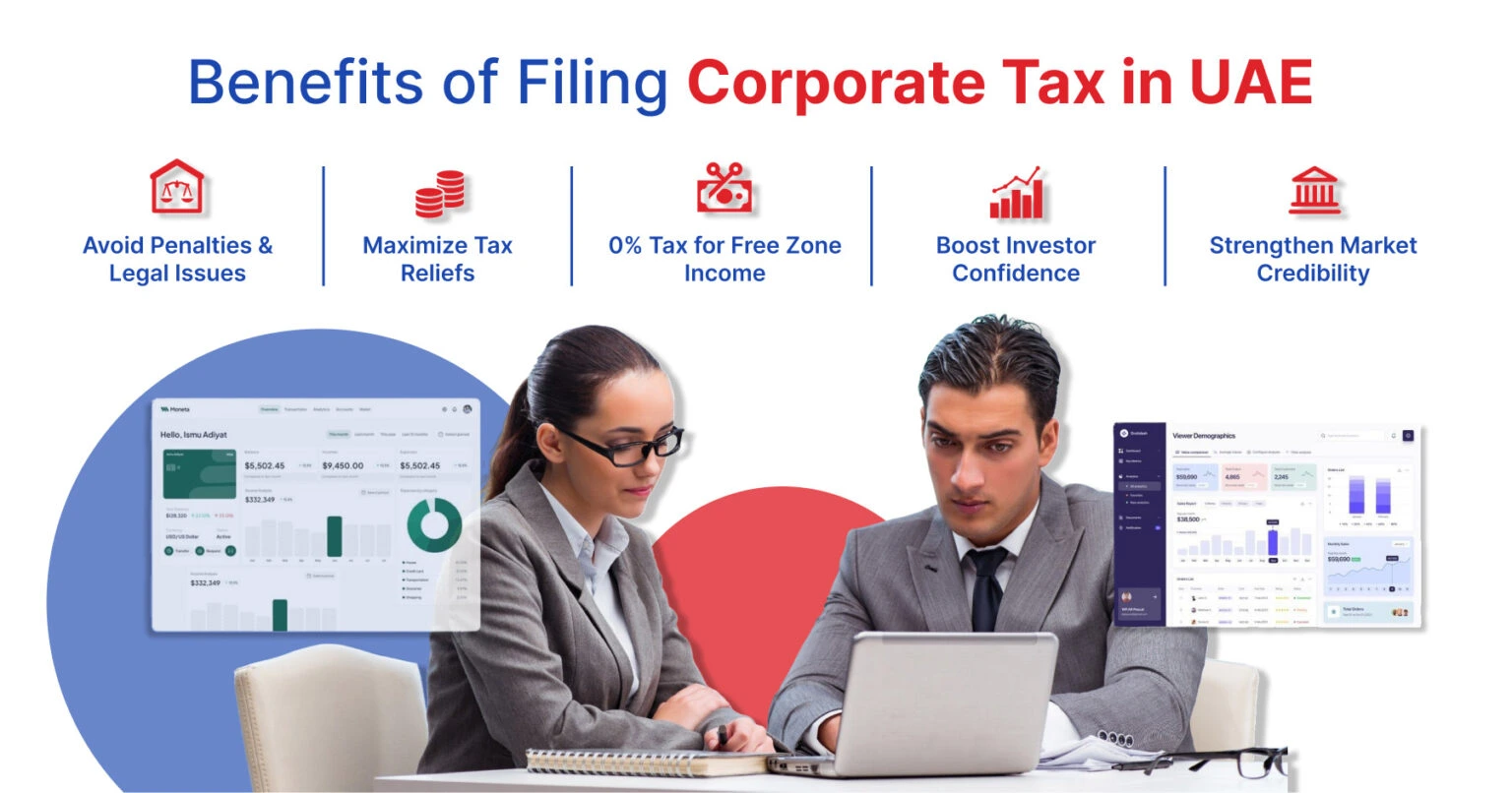The UAE Corporate Tax law introduces several key points designed to create a robust yet business-friendly tax environment. These provisions not only define the tax obligations but also offer various reliefs and incentives.
1. Tiered Tax Rates:
As previously outlined, the UAE Corporate Tax regime employs a tiered system to cater to different business scales.
Primary Considerations
- 0% for taxable income up to AED 375,000.
- 9% for taxable income exceeding AED 375,000.
- 15% for large MNEs with global revenues exceeding AED 3127.5 million, as a Domestic Minimum Top-Up Tax (DMTT).
- This applies only to MNEs within the scope of the Pillar Two Global Minimum Tax.
2. Small Business Relief (SBR):
From June 1, 2023, to December 31, 2026, the UAE offers tax relief to businesses with annual revenue under AED 3 million, allowing them to have no taxable income. This relief simplifies tax compliance and recordkeeping.
It’s available only for UAE resident businesses, excluding Free Zone companies and multinational enterprise groups. To benefit, businesses must elect the relief annually through their corporate tax return.
Key points include:
- Applies to resident persons only.
- Revenue threshold: AED 3 million or less.
- Relief valid through 2026.
- Significantly reduces compliance burden.
- Businesses must not be part of a multinational group or a Qualifying Free Zone Person, as both are excluded from SBR.
4. Participation Exemption:
To avoid double taxation and encourage international investment, the UAE exempts dividends and profit distributions from qualifying shareholdings.
Requirements for exemption:
- Minimum 5% ownership or AED 4 million acquisition cost.
- Shares held for at least 12 months.
- Foreign entity subject to tax at ≥9%.
- Applies to domestic and foreign investments.
5. Loss Set-Off:
UAE Corporate Tax Law allows businesses to offset tax losses against future income. This provides long-term tax efficiency and financial flexibility.
Important considerations:
- Offset capped at 75% of taxable income per period.
- Losses may be carried forward indefinitely.
- Cannot apply losses retroactively.
- Accurate records and business continuity are essential.
6. Tax Grouping:
Groups of UAE-resident companies may consolidate under one tax return, treated as a single taxable entity. This simplifies Corporate Tax filings.
Eligibility criteria:
- Parent owns ≥95% of share capital, voting rights, and net assets.
- All entities must be UAE tax residents.
- The group must elect to be treated as one entity.
- One consolidated return for the group.
7. Foreign Tax Credits:
To prevent double taxation, UAE businesses can claim credits for foreign taxes paid on income also taxed in the UAE.
Key details:
- Credit applies only to the same income taxed abroad.
- Capped at the UAE Corporate Tax due on that income.
- Must provide documentation of foreign tax paid.
- Ensures the total tax burden is not duplicated.













